William H. O’Brien
Chair, Board of Directors
American Beverage
Association
Chief Executive Officer,
Reyes Coca-Cola Bottling
Every morning in America, hundreds of thousands of beverage industry employees wake up with a common mission: to serve our neighbors across the country. From producing and packaging to transporting, delivering and stocking, they work tirelessly to ensure our iconic beverages are flawlessly crafted and readily available at local businesses, stadiums, restaurants, supermarkets and retailers for millions of Americans to enjoy nationwide.
Whether at a summer barbecue, in a workplace break room or the Oval Office, our products are woven into the fabric of America. We offer something for everyone. Our beverages are shared to kickstart the day, during a meal and special moments. They are beloved across generations.
Our work and commitment to tackling tough challenges together ensures we can continue to serve generations to come. That commitment was clear in 2024 as we:
Powered the American economy and provided significant tax revenue to state and federal governments and generous charitable contributions to organizations nationwide.
Invested in modernizing recycling infrastructure in 20 communities and delivered choice and information throughout the beverage aisle.
Defended our family-owned businesses and everyday Americans against regressive taxes and bans and inaccurate political narratives like shrinkflation.
Advocated for effective collection policy and protected consumer choice at the state and federal level.
And stood with our communities when they needed us the most.
As we look to 2025, our industry will continue to rise to the occasion – driving forward, every sip of the way. We will draw on our collective power – hundreds of companies that comprise an iconic industry, making American products with American workers in American hometowns – to continue to deliver for our consumers, customers and communities.

Chair, Board of Directors
American Beverage
Association
Chief Executive Officer,
Reyes Coca-Cola Bottling

President and
Chief Executive Officer
American Beverage
Association
Members
family-supporting jobs for U.S. workers
of beverages Americans buy have zero sugar
beverages with zero sugar on the market
in direct economic impact
donated to charitable causes in communities across the nation
bottles include recycled plastic
free recycling carts delivered to households
contributed in state and federal taxes
in wages and benefits
Americans with improved recycling through Every Bottle Back investments
workers whose income depends, in part, on beverage sales
We are committed to reducing plastic waste and using less new plastic. In 2024, we made real progress in advancing circularity for our valuable recyclable plastic bottles and aluminum cans, so they do not end up in the environment. Today, Americans are seeing more plastic bottles made of 100% recycled plastic on beverage shelves than ever before. Whether investing in communities, shaping effective policy or designing with the end in mind, we are getting more of our valuable material back and doing our part to drive sustainable solutions.
As 2024 brought new discussion around health in the United States, our industry took the opportunity to remind policymakers that no industry has done more than ours to provide choice, reduce sugar in the American diet and tackle obesity. Hardworking Americans enjoy our products, and our collective actions have made a sizable impact. America’s beverage companies have been innovating and marketing more choices with less sugar and clear calorie information for decades. Through our commitments, and actions, we will continue to provide families with the choices they want and the information they need to support their efforts to achieve a balanced lifestyle.
We are American companies that make American products with American workers in America’s hometowns. We are not only driving economic growth and delivering iconic beverages in neighborhoods nationwide, we are also giving back to the communities we serve and supporting organizations driving meaningful change. Our nation is strong when our communities are strong, and we are committed to building them up because it’s where we live and work, too.


Communicating to policymakers and consumers the value and recyclability of our containers is core to our sustainability efforts. In 2024, we introduced a new, elevated narrative: Made to Be Remade. This next generation campaign showcased our 100% recycled PET containers and drove home the message that our containers can be – and are being – remade into new ones. In 2025, Made to Be Remade will continue to raise awareness of the value of our plastic bottles and aluminum cans.


Five years ago, we launched our Every Bottle Back initiative, a breakthrough and sustained effort to reduce our use of new plastic and get more containers back so they can be remade as intended. We celebrated our investments five years in – more than $29 million across 50 communities – and the meaningful improvements to recycling at the community level, including collection, sorting technology and knowledge on how to recycle properly.
Working closely with Closed Loop Partners and The Recycling Partnership, we have made recycling more accessible and convenient for 14 million Americans and provided 985,000 new curbside recycling carts. Our work together will keep an estimated 707 million pounds of PET and 43 million pounds of aluminum out of landfills and the environment over the next decade.
In 2024, we invested in projects in Alabama, California, Colorado, Connecticut, Florida, Georgia, Illinois, Massachusetts, Michigan, Minnesota, Missouri, New Jersey, New York, Texas and Wisconsin.
These efforts are working. In fact, nearly two out of three bottles include recycled plastic and the amount of recycled plastic in our bottles nearly tripled over a four-year period. We’re making real progress, and we’re not done yet.


Getting Every Bottle Back requires real solutions, and good collection policy can help. Where the conversation is happening, we are at the table: advocating for effective extended producer responsibility (EPR) policies, educating policymakers on our actions and working with environmental partners and like-minded organizations to shape policy.
We celebrated a major win when Minnesota passed EPR legislation aligned with the American Beverage-World Wildlife Fund joint policy principles—building on our success in Colorado. In other states, including Hawaii (Honolulu), Illinois (Chicago), Michigan and New York, we defeated harmful policies that would have put substantial new cost burdens on local families and businesses while adding fees to recycling systems already in need of reform and modernization. Interest in public policy solutions to plastic waste will only continue to grow and we are well-positioned to actively drive meaningful policy solutions for the environment, public and industry in 2025 and beyond.
Collection policy discussions extended to the federal and international level in 2024. In DC, we continued to work with the administration and Congress to make clear the value of our containers and shape regulation and policy proposals on plastic waste and recycling. Our efforts resulted in two bipartisan bills, the Recycling and Composting Accountability Act and the Recycling Infrastructure and Accessibility Program, being signed into law that are strong steps forward in supporting local materials circularity.
On the global level, together with the International Council of Beverage Associations, we are an active, committed stakeholder in the ongoing negotiations for a UN Plastic Pollution Treaty. We worked closely with governments and other stakeholders to advance ambitious, coordinated policy measures that drive harmonization across markets and deliver business certainty.


Today’s beverage aisle provides Americans with more choices than ever before that are low in sugar or have no sugar at all. With sparkling and flavored waters, zero-sugar teas, sports drinks, mini-cans and more, consumers have a range of options from the more than 400 beverages with zero sugar. And families are taking advantage of these options – nearly 60% of the beverages Americans buy have zero sugar. That’s no coincidence. It’s a result of our ability and willingness to take thoughtful action, creating a significant impact over time.


In 2025, we will continue to drive the important message that consumers know what’s right for them and should be empowered to choose a beverage that best fuels their day. Restricting choice does not lead to better health outcomes, and this includes those receiving Supplemental Nutrition Assistance Program (SNAP) benefits. That’s why we’re working with the U.S. Department of Agriculture (USDA), members of Congress and the White House to shape a new Farm Bill that preserves the dignity and freedom of choice at the grocery store for every American. Along with a broad, bipartisan alliance, we successfully defeated attempts to introduce new restrictions that could have eliminated certain items from SNAP purchases including beverages, whole milk, white bread, lunch meat and sweetened yogurt. This alliance will be critical as we look to an extended Farm Bill and welcome a new administration and Congress in 2025.


Energy drinks have been safely enjoyed by billions of people for more than 30 years and demand remains strong. This year, we elevated our work to ensure policymakers and media understand that as the top makers of energy drinks, our members take our responsibility seriously when it comes to energy drink labeling transparency and empowering parents to make the right decisions for their families. That’s why we go beyond government-mandated labeling requirements and have set high standards for marketing, including not marketing to children. We focused throughout the year on telling this story to policymakers and media, including through our reinvigorated EnergyDrinkInformation.com website that differentiates our members as leaders.


With a renewed conversation around health in America and addressing chronic disease, we kept a consistent drum beat with policymakers, stakeholders, media and consumers to set the record straight: Calories from sugar-sweetened beverages are a small part of the diet – less than 6%, according to USDA. And data from the past 20 years has shown us that obesity rates and soda consumption are not correlated. In fact, adult obesity is up 37.4% since 2000, beverage calories per serving are down 42%.i, ii This is a direct result of our companies’ efforts to provide more choices with less sugar. We have a strong record to stand on in the health arena, which we will continue to amplify and hone as policymakers at all levels of government pursue solutions in 2025.


America’s beverage companies have roots in every community across the country. Our companies, distributors and employees are delivering $247 billion in economic impact annually, providing more than 270,000 good-paying, family-supporting careers and contributed $2.5 billion to philanthropic causes in communities nationwide.


The men and women of America’s beverage companies care deeply for their communities and one another. They are moms and dads, daughters and sons, who show up for their neighbors day after day, whenever and wherever they’re needed. After hurricanes devastated communities across the southeast, beverage companies from all over the region jumped to support through providing water, meals, and financial assistance. Ahead of the 2024-2025 school year, Coca-Cola Beverages Florida provided more than 5,500 students with new backpacks filled with pencils, notebooks, markers and other classroom supplies. In the spring, Keurig Dr Pepper awarded $730,000 in college tuition to students as part of the Dr Pepper Tuition Giveaway. More than 70 PepsiCo employees volunteered to plant more than 100 trees and plants in South Los Angeles on Earth Day. In these ways and so many more, we are here for you – always have been and always will.


Local leaders understand the needs of their communities the best. That’s why we’ve partnered with The U.S. Conference of Mayors, the African American Mayors Association and state beverage associations on grant programs that directly support people and organizations making a real difference. In 2024 alone, we awarded more than $1.6 million to 30 cities across the country and their innovative programs that are working to advance the physical health of their citizens and/or the environmental health of their communities.
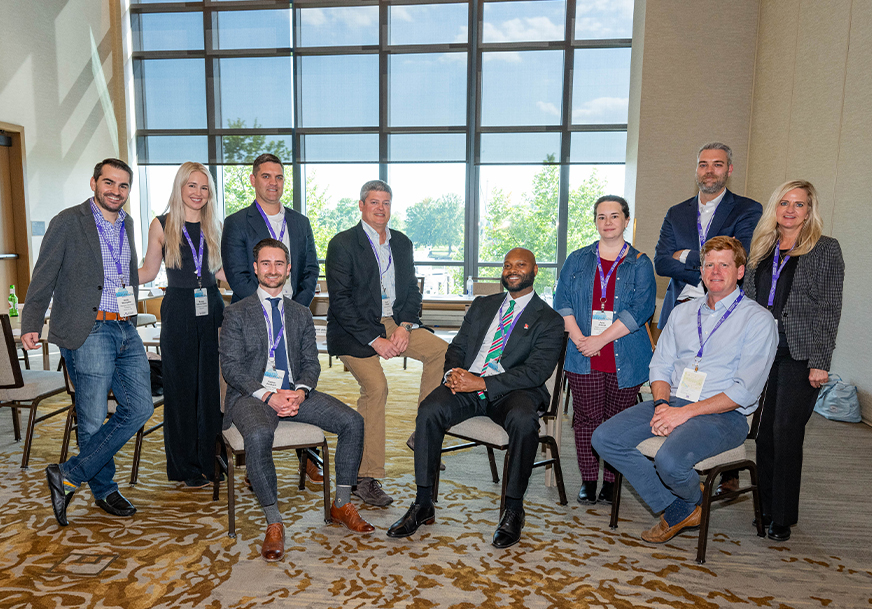
As an industry made up of many family-owned businesses, beverage company representatives meet to discuss how our industry is evolving and preparing for the next generation.
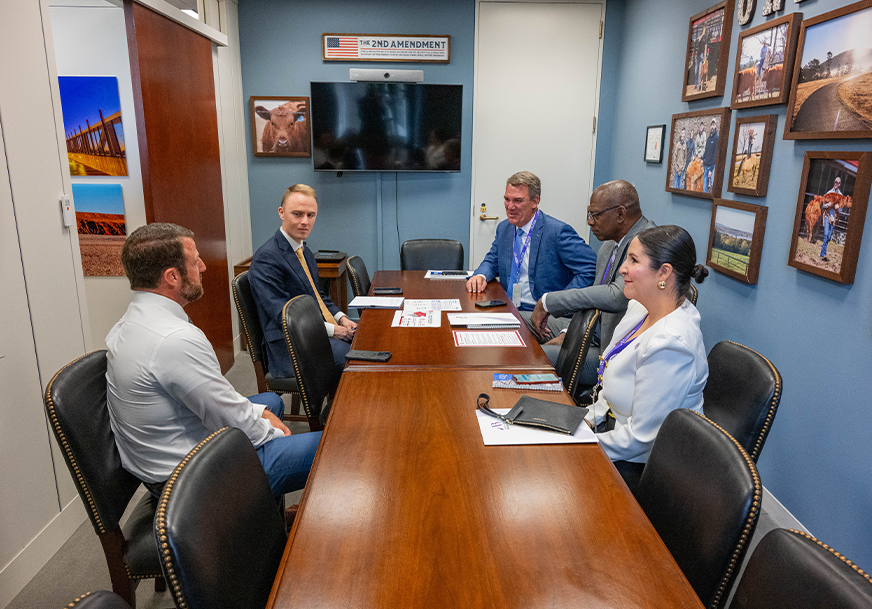
Sen. Markwayne Mullin (R-O.K.) (front left), sits down with our members to discuss how the industry contributes to Oklahoma’s economic activity.
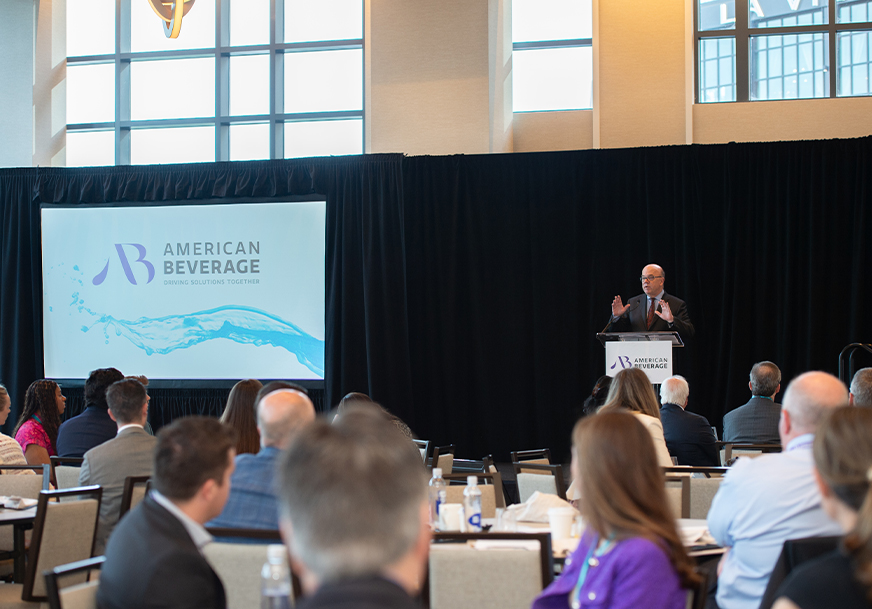
Fly-In attendees hear from Rep. Jim McGovern (D-M.A.) on how our industry can effectively meet with lawmakers.
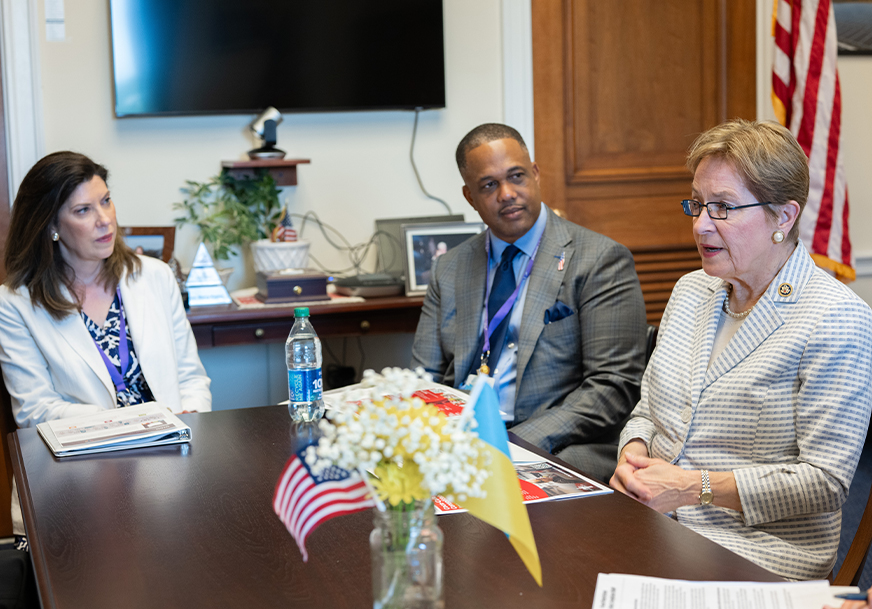
(Right to left) Rep. Marcy Kaptur (D-O.H.) meets with Coca-Cola Consolidated’s Brent Tollison and Ohio Beverage Association’s Kimberly McConville to discuss the industry’s economic impact and contributions in Ohio.
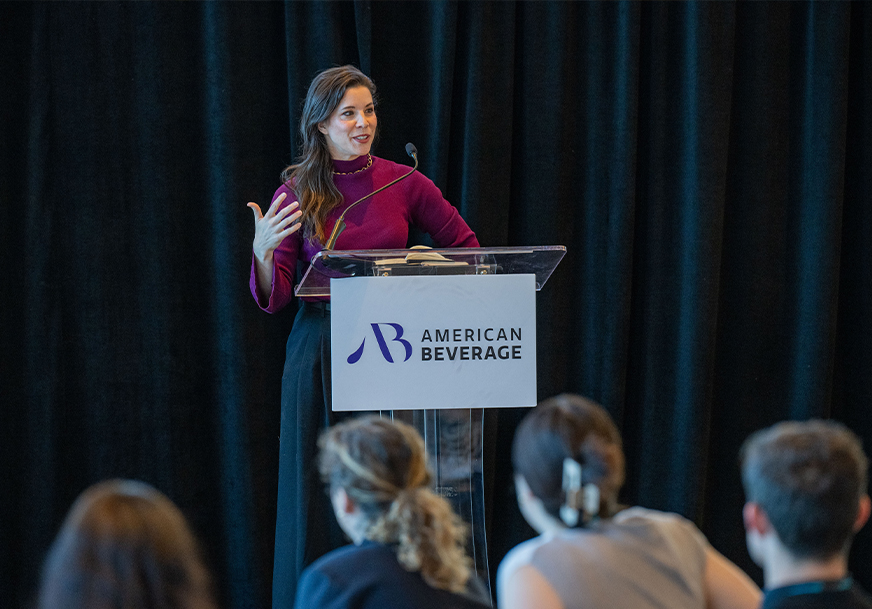
Townhall.com and CNN’s Mary Katharine Ham shares political insights with Fly-In attendees before they embark on Capitol Hill for meetings.
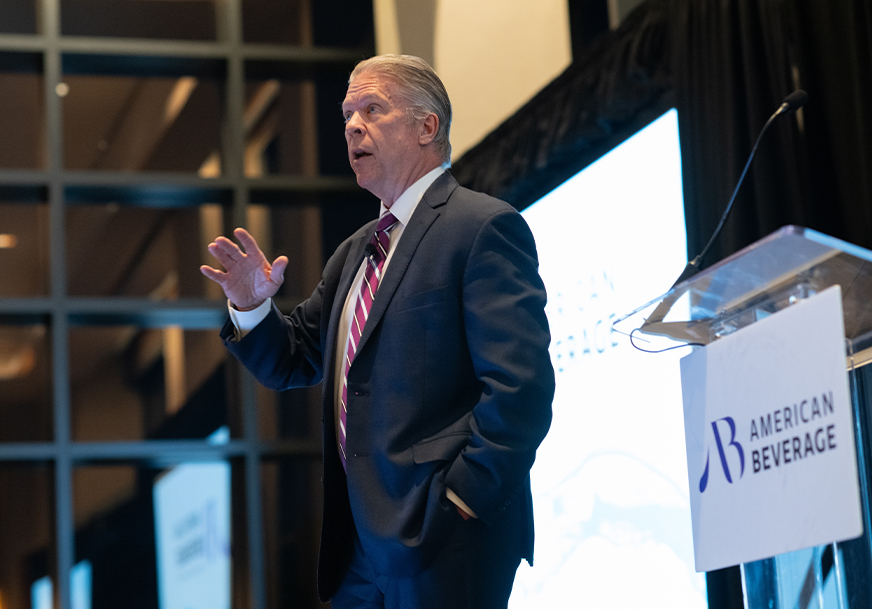
CBS News’ Chief Washington Correspondent Major Garrett speaks to Fly-In dinner attendees on his experience covering politics in Washington.

Maine Beverage Association’s Newell Augur and Sen. Angus King (I-M.E.) pose for a photo after discussing the beverage industry’s impact in the Pine Tree State.
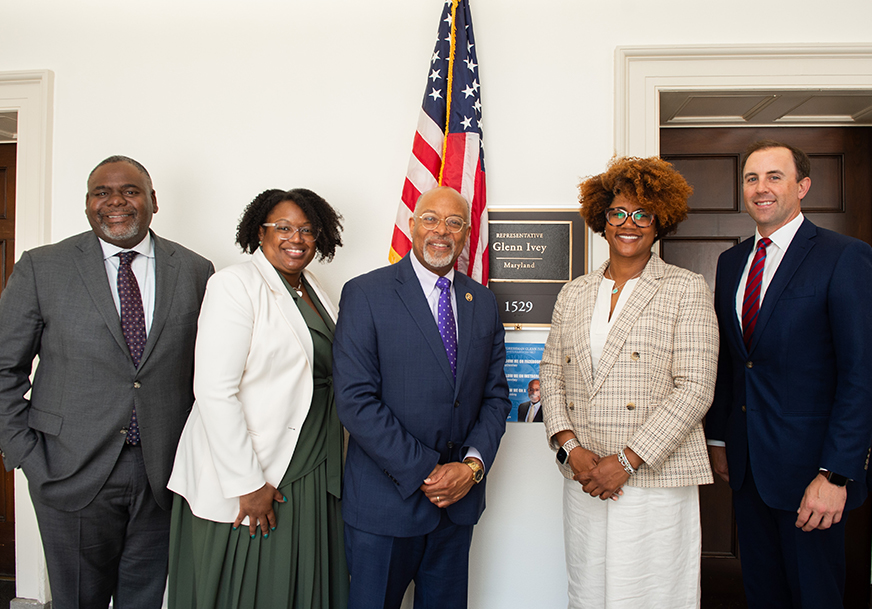
(Left to right) ABA’s Franklin Davis, PepsiCo’s Deriece Harrington, Rep. Glenn Ivey (D-M.D.), Maryland-Delaware-D.C. Beverage Association’s Tiffany Harvey and The Coca-Cola Company’s Steve Rebillot post together after a productive meeting on Capitol Hill.
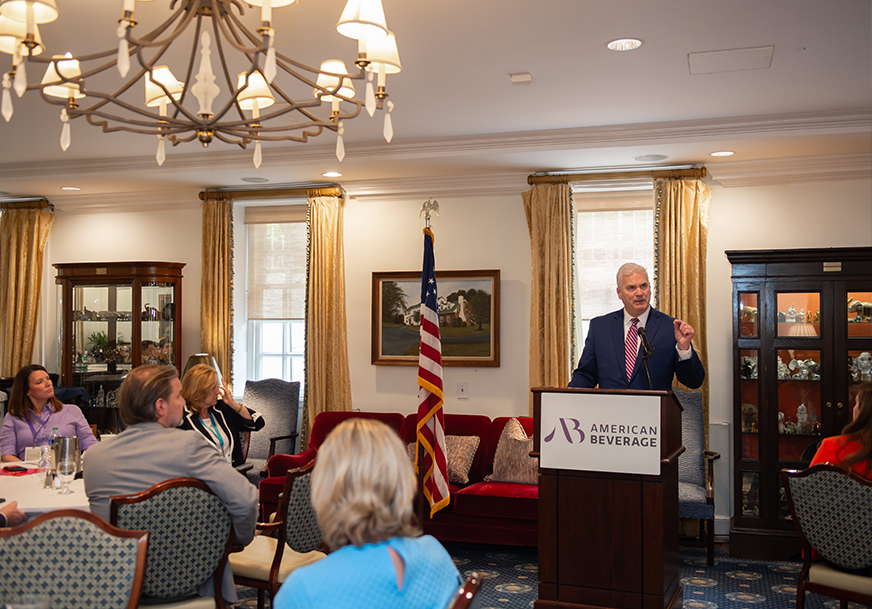
House Majority Whip Tom Emmer (R-M.N.) speaks to Fly-In attendees at the Capitol Hill Club on congressional priorities.
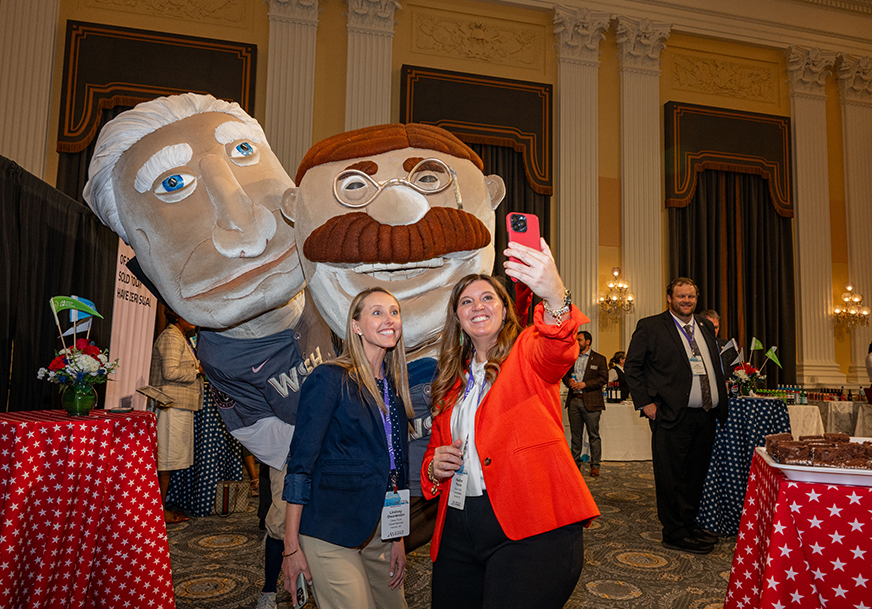
Fly-In attendees pose with the Washington Nationals’ Racing Presidents at the Annual Beverage Bash on Capitol Hill.
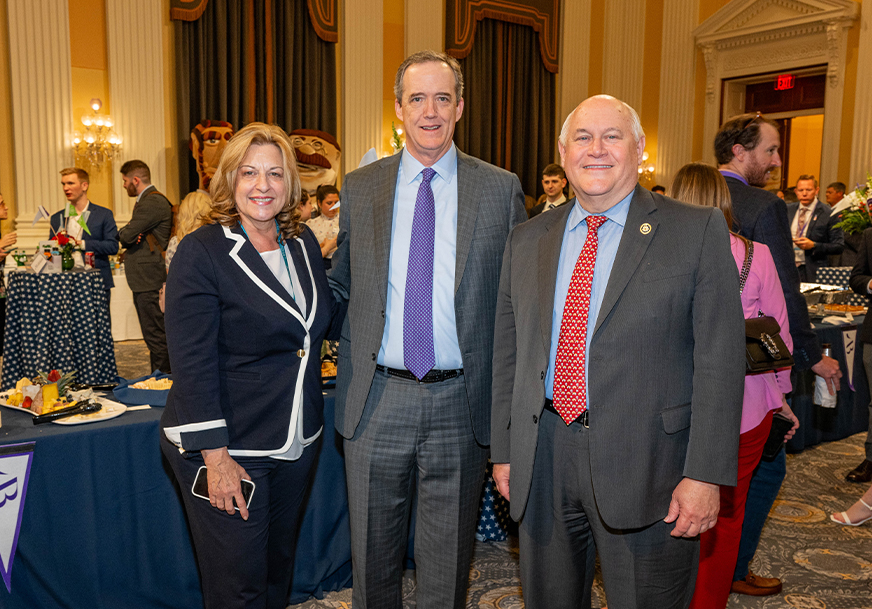
(Right to left) Rep. Glenn “GT” Thompson Jr. (R-P.A) joins ABA President and CEO Kevin Keane and Barbara Hiden for fun and festivities at the Annual Beverage Bash on Capitol Hill.
In April, nearly 200 beverage industry employees traveled to Washington, D.C. to meet with their members of Congress to share our story of leadership and solutions.











More than 200 beverage industry employees, partners and panelists met in Boston to discuss key issues shaping the policy landscape and strategize for the year ahead.
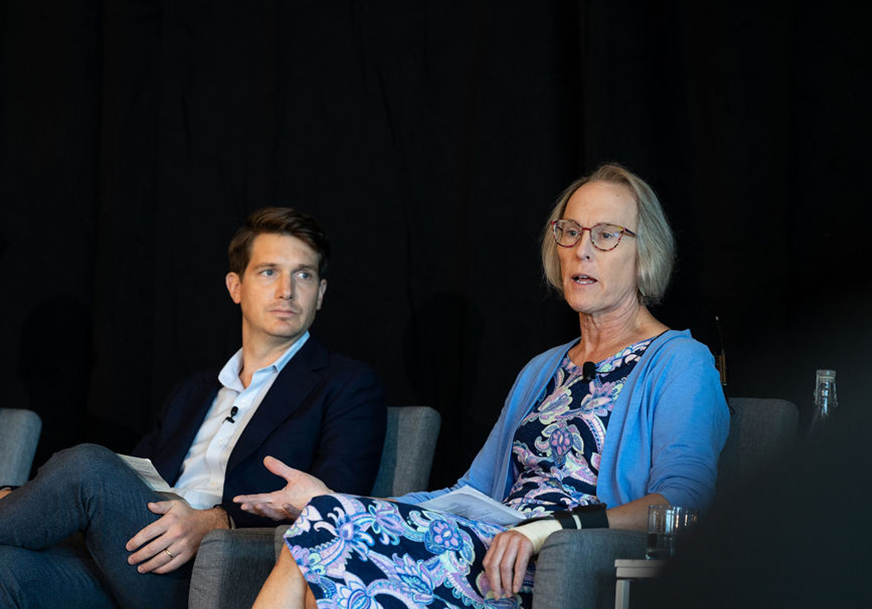
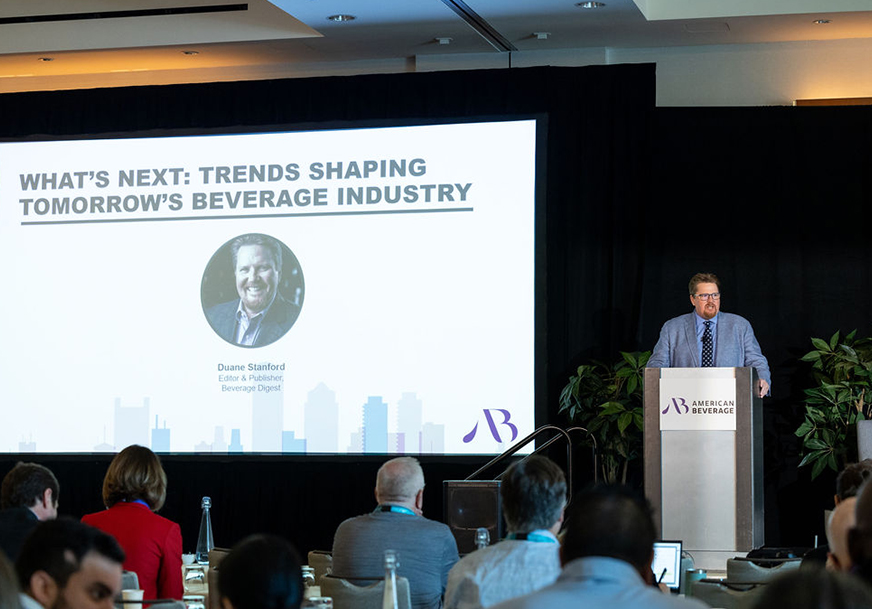
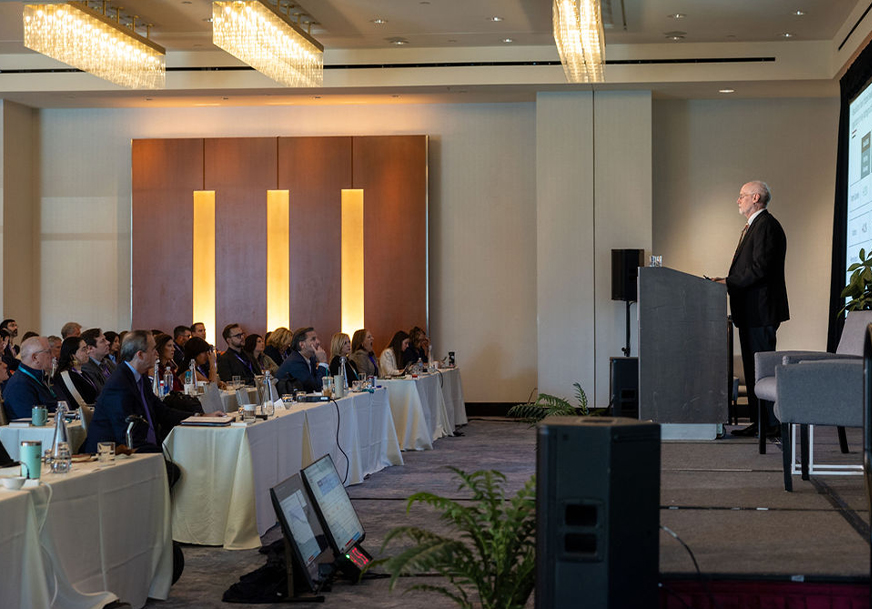
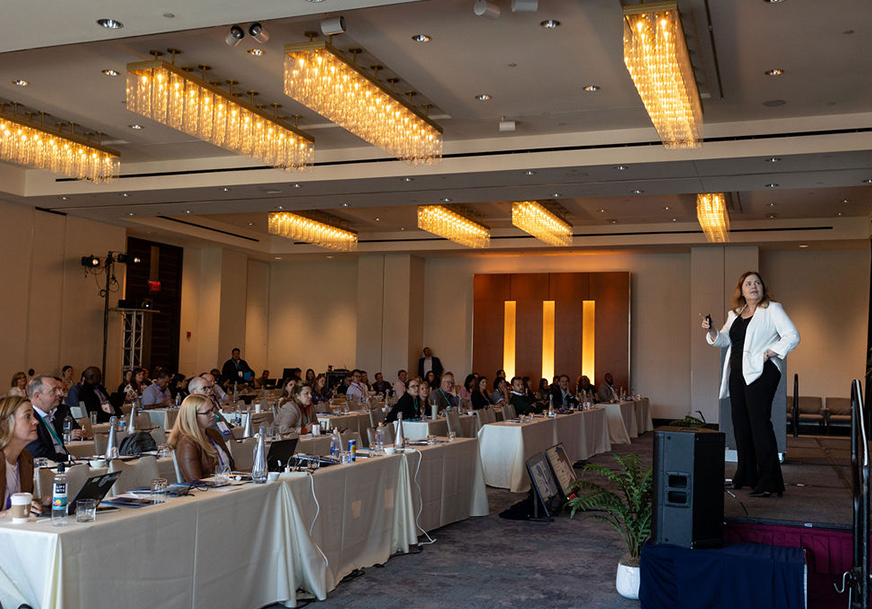
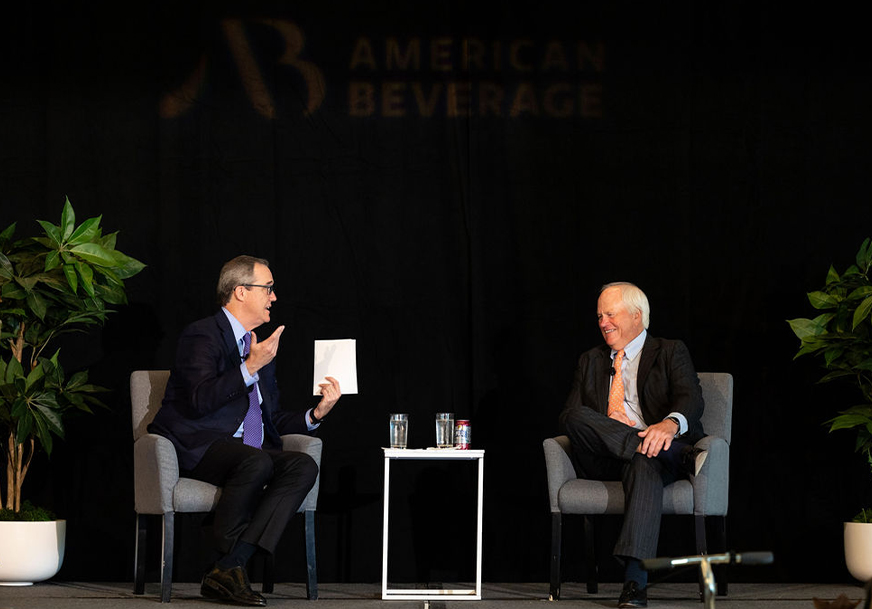
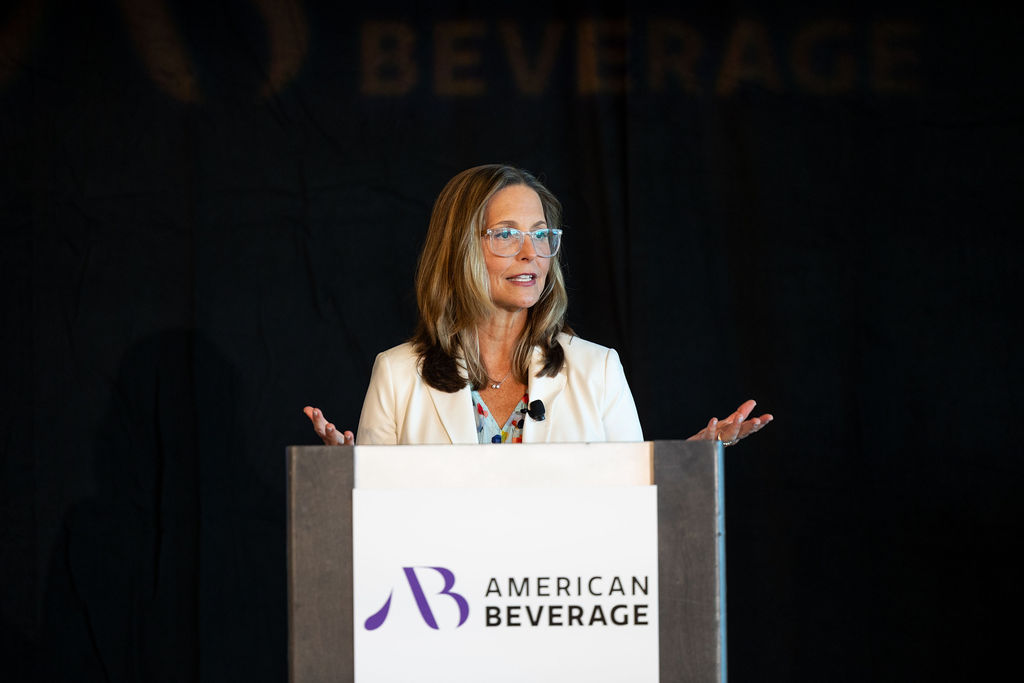
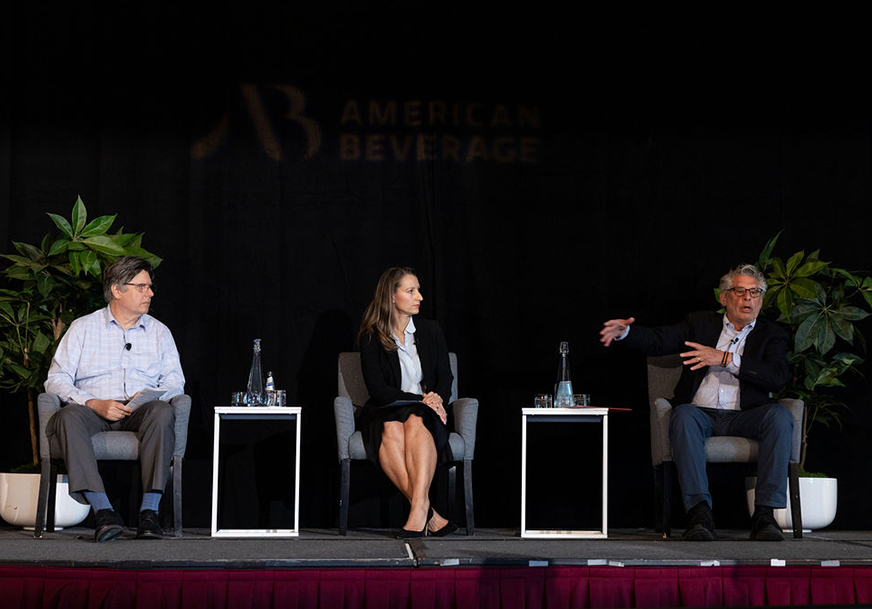
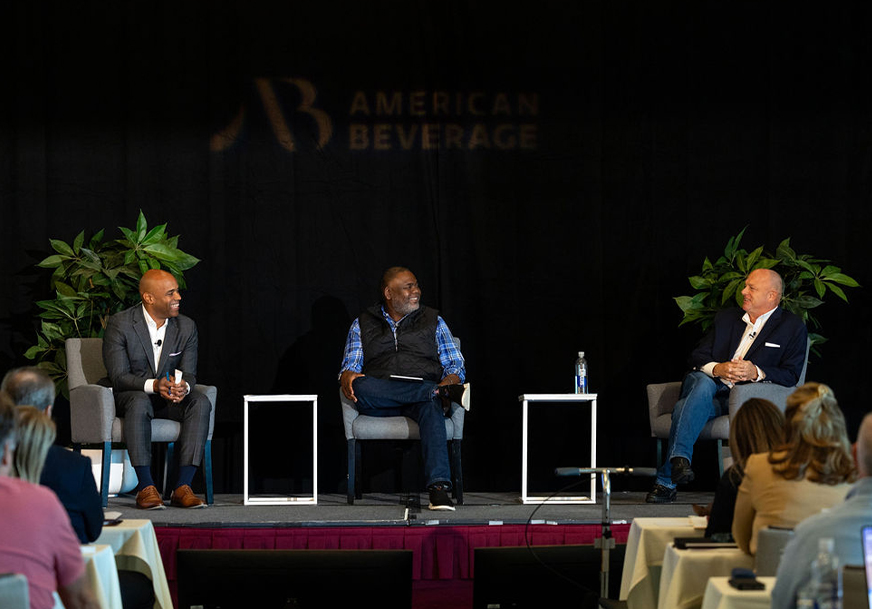
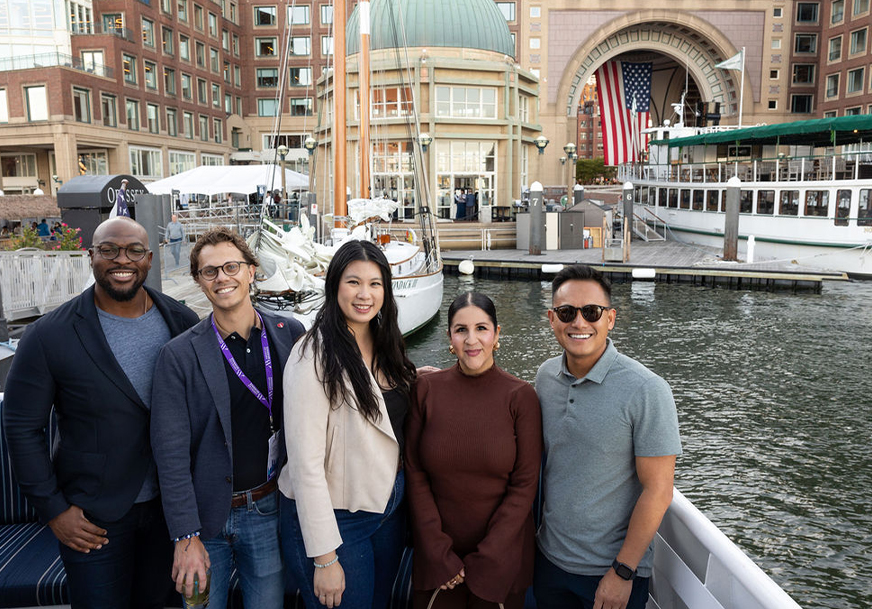

Breezeway Consulting’s Bree Dietly (right) discusses the importance of successful collection policy when it comes to achieving strong environmental outcomes with Walmart’s Alex Schenck (left).

Beverage Digest Editor & Publisher Duane Stanford shares data-driven insights, trends and what’s next for the beverage industry in the year ahead.

Public Opinion Strategies Partner and NBC News Pollster Bill McInturff gives a final look into the 2024 presidential election data a few weeks before election day.

Cornell University Professor of the Practice of Management Risa Mish leads an interactive session on influence and strategic thinking.

ABA President & CEO Kevin Keane and ABA Board Treasurer and Polar Beverages President & CEO Ralph Crowley welcome attendees with a fireside chat on industry priorities.

U.S Chamber of Commerce Executive Vice President and Chief Communications Officer Michelle Russo presents a framework for using the right language to advance your message.

(Right to Left) Polsinelli PC Head of U.S. Food and Drug Administration Practice Stuart Pape (right) dives into recent attention on energy drinks with ABA’s Sandra Grance and William Dermody.

ABA’s Franklin Davis (middle) predicts election outcomes with Jamal Simmons, former communications director for Vice President Kamala Harris (left) and David Urban, senior advisor for the 2016 Donald Trump Presidential Campaign (right).

Attendees end the conference in Boston with a scenic cruise around Boston Harbor.
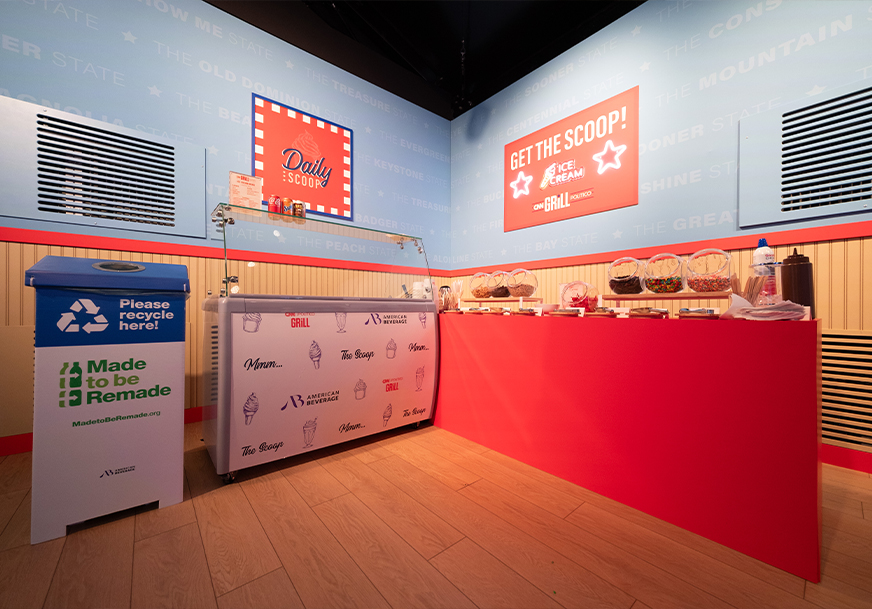
A Made to Be Remade recycling bin next to the ABA-sponsored ice-cream station at the Democratic National Convention.
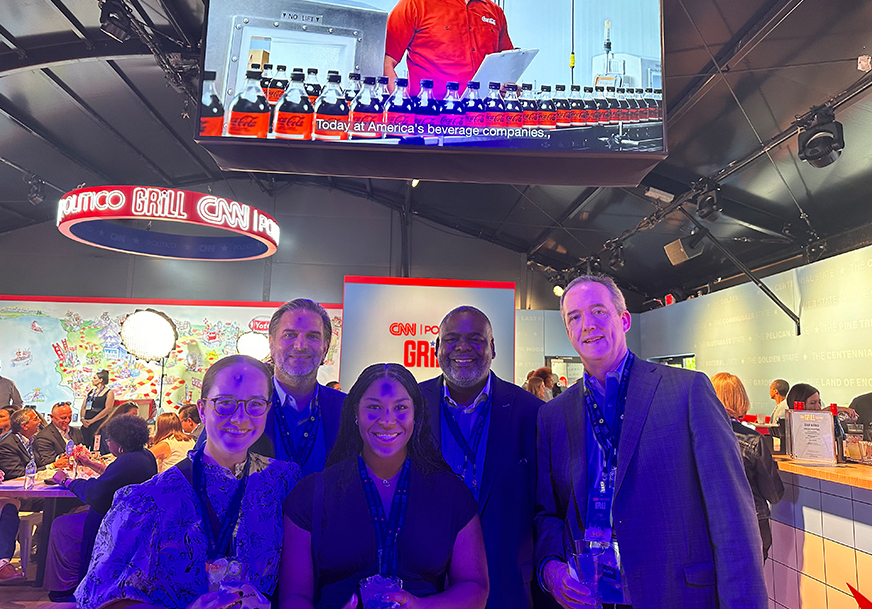
ABA staff pose for a photo in front of the Made to Be Remade advertisement at the Democratic National Convention.
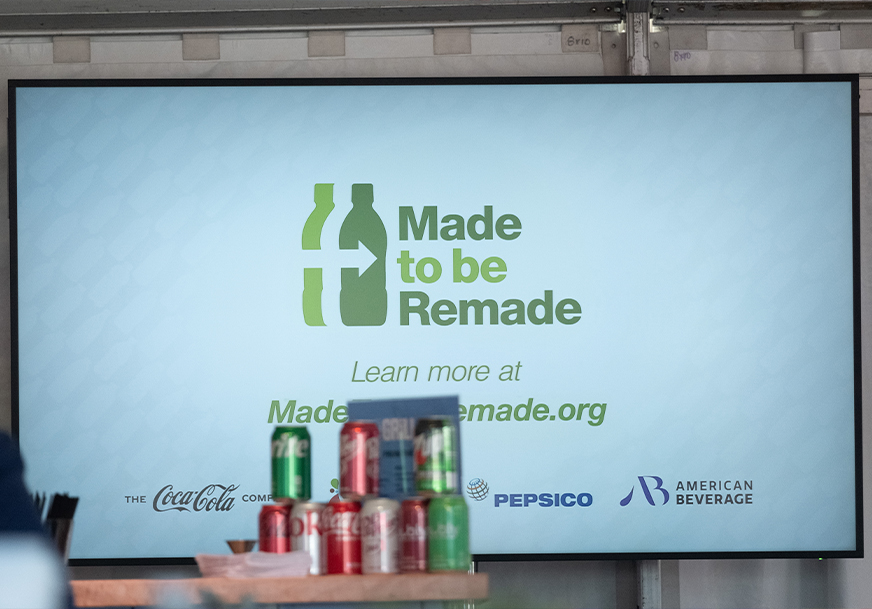
Made to Be Remade advertisement behind beverage at the Democratic National Convention.
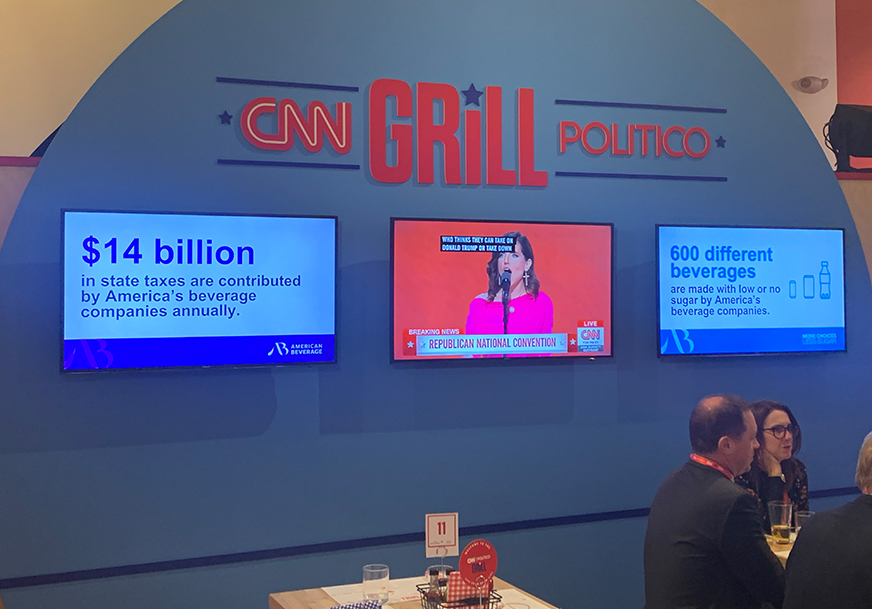
ABA advertisements on televisions at the Republican National Convention.
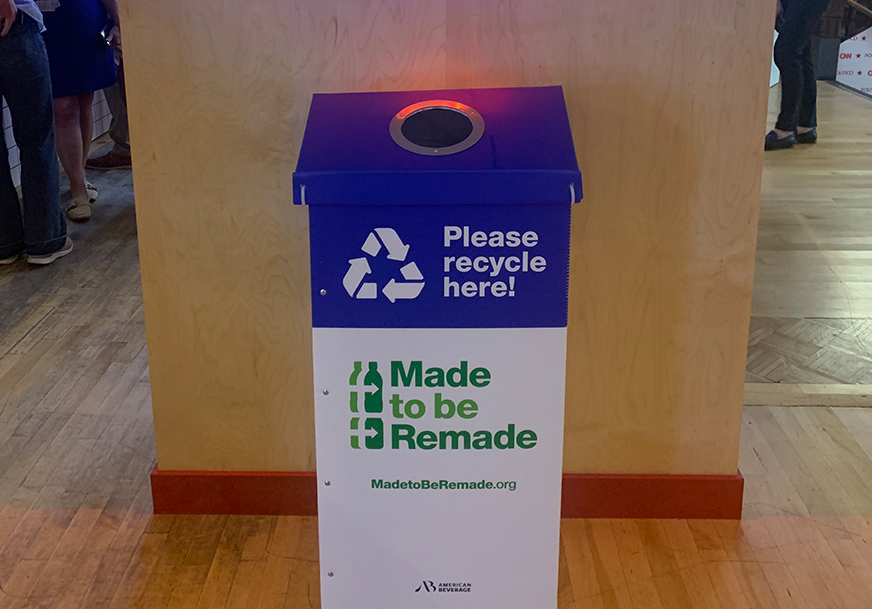
Made to Be Remade bins at the Republican National Convention.

ABA-sponsored ice-cream station at the Republican National Convention.
Earlier this year, ABA staff and member company representatives attended the Republican and Democratic National Conventions in Milwaukee, Wis., and Chicago, Ill. Industry representatives and activations amplified how the beverage industry is made up of iconic American companies who are proactively addressing pressing issues on health and sustainability.







Not Pictured: Leah Bebee, Juan Camacho, Megan Daum, Kate Loatman, Stacey Pine and David Thorp